Become a Police Officer in Winnipeg: Step-by-Step
Did you know that Winnipeg, the capital city of Manitoba, has one of the largest police services in Canada? With over 1,500 sworn officers, the Winnipeg Police Service plays a crucial role in maintaining the safety and security of the city. If you’ve ever dreamed of joining the ranks of these dedicated professionals, this article is for you. In this comprehensive guide, I will walk you through the step-by-step process to become a police officer in Winnipeg, from the minimum requirements to the rigorous application process and the training you’ll undergo. Let’s dive in!
Key Takeaways:
- Winnipeg Police Service is one of the largest police services in Canada, with over 1,500 sworn officers.
- This article provides a step-by-step guide to becoming a police officer in Winnipeg.
- The process includes meeting minimum requirements, undergoing a thorough application process, and completing rigorous training.
- Transitioning from a security guard to a police officer is possible, as the skills and experiences gained in the security field can be beneficial in law enforcement.
- Dispelling myths and misconceptions about police career requirements is important to provide accurate information to aspiring candidates.
Minimum Requirements for Police Officer Applicants
To apply for a police officer position in Winnipeg, you must meet the following minimum requirements:
- Be a Canadian citizen or a permanent resident of Canada
- Be proficient in English and/or French
- Have a Canadian high school diploma or equivalent
- Be in good health
- Meet the vision and hearing standards
- Have the necessary level of physical abilities
- Have good character with no criminal convictions or charges pending
- Complete additional requirements set by each police force, such as residency and driver’s license criteria
These requirements ensure that candidates possess the essential qualifications and attributes necessary to serve as police officers in Winnipeg. By meeting these standards, applicants demonstrate their commitment to upholding the law and serving the community.
For a visual representation of the minimum requirements, refer to the table below:
(Insert table here)
Application Process for Winnipeg Police
The application process to become a police officer in Winnipeg is thorough and rigorous. It is designed to ensure that qualified candidates are selected to serve and protect the community. The process involves several stages and assessments to assess an applicant’s knowledge, physical abilities, mental health, ethical standards, and overall suitability for the role.
- Written Exam: The first step is the written exam, which evaluates a candidate’s knowledge and comprehension of various topics relevant to police work. This exam tests critical thinking, problem-solving, and decision-making skills.
- Physical Exams: Physical exams are conducted to assess a candidate’s physical abilities, strength, endurance, and overall fitness level. These exams typically include components such as agility tests, obstacle courses, and fitness assessments.
- Psychological Exam: The psychological exam evaluates a candidate’s mental health and emotional stability. It helps determine if the candidate is suitable for the challenging and demanding nature of police work.
- Medical Exams: Medical exams are conducted to assess an applicant’s overall health and fitness. These exams evaluate physical conditions, vision, hearing, and any potential medical limitations that may affect the candidate’s ability to perform essential job functions.
- Polygraph Exam: A polygraph exam, also known as a lie detector test, is conducted to determine the candidate’s honesty and integrity throughout the application process. This exam helps ensure that individuals with questionable backgrounds or dishonest tendencies are not selected for the role.
- Background Investigation: The background investigation is a comprehensive process that involves speaking to colleagues, family members, and past employers to assess an applicant’s character, reputation, and ethical standards. It includes verifying criminal records, driving records, credit history, and obtaining information about past drug use.
Applicants must successfully complete all stages of the application process to proceed in the selection process. Each stage is designed to provide a comprehensive evaluation of candidates and ensure that those selected meet the high standards set by the Winnipeg Police Service.
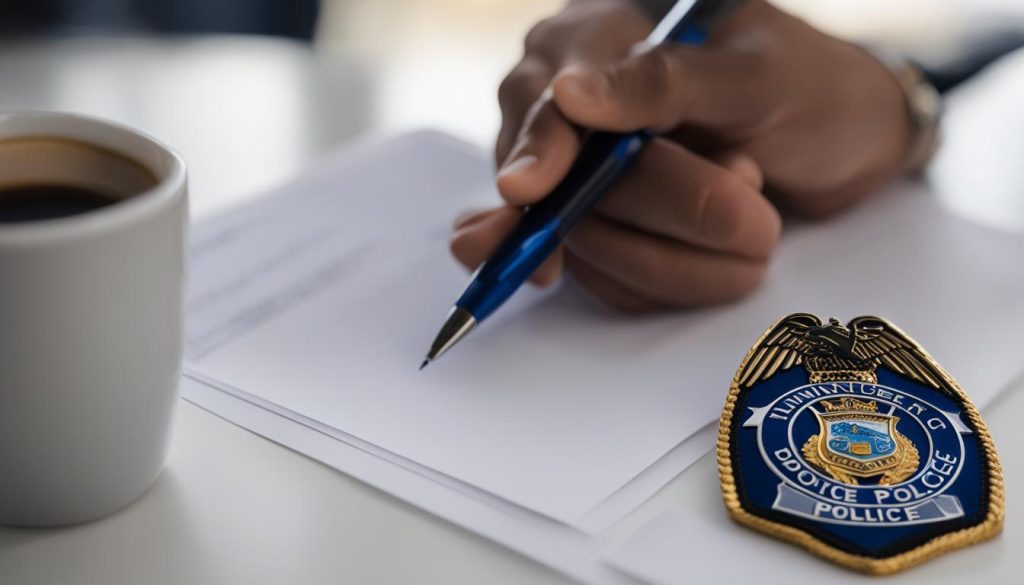
| Stage | Description |
|---|---|
| Written Exam | Evaluates a candidate’s knowledge and comprehension of various topics relevant to police work. |
| Physical Exams | Assesses a candidate’s physical abilities, strength, endurance, and overall fitness level. |
| Psychological Exam | Evaluates a candidate’s mental health and emotional stability. |
| Medical Exams | Assesses an applicant’s overall health, fitness, vision, and hearing. |
| Polygraph Exam | Determines the candidate’s honesty and integrity throughout the application process. |
| Background Investigation | Verifies a candidate’s character, reputation, and ethical standards through interviews and records checks. |
Training and Probationary Period
Once selected as a police officer in Winnipeg, the journey towards becoming a fully-fledged member of the Winnipeg Police Service begins. This journey includes comprehensive training at the esteemed Winnipeg Police Training Academy, where candidates undergo a rigorous program designed to equip them with the necessary skills and knowledge to serve and protect the community.
The training process starts with academic courses that can last up to six weeks, tailored to the candidate’s previous training and experience. These courses cover a wide range of topics relevant to law enforcement, including criminal law, community policing, and conflict resolution. The goal is to ensure that trainees have a solid foundation in the principles and practices of modern policing.

Following the academic training, candidates progress to the next phase of their training: the field training program. This 12-week program provides practical, hands-on experience under the guidance and evaluation of a Coach Officer. The field training encompasses various aspects of law enforcement, such as firearms training, emergency response protocols, and investigative techniques. Trainees have the opportunity to apply what they have learned in the classroom to real-life scenarios, preparing them for the challenges they may face on the job.
It is during this intensive training period that trainees undergo assessments and evaluations to ensure they meet the high standards set by the Winnipeg Police Service. Candidates must demonstrate proficiency in both academic knowledge and practical skills to successfully complete the training program.
Probationary Period
Upon successful completion of the training program, lateral entry constables enter into a probationary period lasting two years. This period is designed to provide ongoing support, guidance, and evaluation as newly appointed constables gain practical experience in their roles. During this time, probationary police officers are assigned to different units and work closely with experienced officers to further develop their skills and integrate into the police service.
The probationary period allows the Winnipeg Police Service to closely monitor and mentor new constables, ensuring they adhere to the high standards of professionalism, ethics, and conduct expected of law enforcement professionals. It also provides an opportunity for probationary officers to demonstrate their commitment to the values and mission of the police service.
Throughout the training and probationary period, constant learning and growth are emphasized to foster the development of well-rounded and competent police officers who can effectively serve and protect the diverse community of Winnipeg.
Salary and Classification
As a lateral entry constable in Winnipeg, your salary will be determined by the Winnipeg Police Service upon your appointment. Your classification and salary level will be based on the number of years you have completed with another police organization.
The salary schedule for lateral entry constables includes different classifications and corresponding hourly, bi-weekly, and annual rates. As of February 11, 2024, the salary ranges from $36.53 per hour for a Third Class (First year) constable to $56.21 per hour for a First Class constable.
It’s important to note that lateral entry constables have the opportunity to advance in rank and salary incrementally on their hiring anniversary until they reach the rank of First Class Constable.
With the competitive salary offered by the Winnipeg Police Service, becoming a police constable in Winnipeg can provide you with a rewarding career both in terms of financial compensation and personal fulfillment.
Disqualifiers for Police Officer Applicants
While pursuing a career as a police officer in Winnipeg can be exciting, it’s important to be aware of certain disqualifiers that may prevent you from achieving this goal. Meeting the minimum requirements is crucial, including Canadian citizenship or permanent residency, proficiency in English and/or French, and having a Canadian high school diploma or equivalent.
However, there are additional factors that can disqualify you from becoming a police officer:
- Criminal Convictions: Having criminal convictions or charges pending can be a significant disqualifying factor. The Winnipeg Police Service carefully reviews an applicant’s criminal record to assess their suitability for the role.
- Recent Criminal Activity: Involvement in criminal activity within the last two years can also hinder your chances of becoming a police officer. Demonstrating a solid track record of good character and ethical conduct is essential.
- Dishonorable Discharge: Having a dishonorable discharge from a previous law enforcement organization can be grounds for disqualification. The Winnipeg Police Service looks for individuals with a strong and positive work history.
- Financial Instability: Having a pending or current personal bankruptcy may raise concerns about your financial responsibility and stability. Sound financial management is an important aspect of police work.
- Vision and Hearing Standards: Failing to meet the vision and hearing standards set by the Winnipeg Police Service may also disqualify you. Good eyesight and hearing are essential for effective law enforcement.
- Poor Driving Record: Having a poor driving record can be a disqualifying factor, as police officers are required to have excellent driving skills and maintain a clean driving history.
- Physical and Psychological Examinations: Failing to meet the physical and psychological examination requirements can also prevent you from becoming a police officer. These examinations ensure that you are physically fit and mentally prepared for the demands of the job.
It’s important to note that each police force may have specific disqualifying factors, so it’s essential to thoroughly review the requirements and expectations of the Winnipeg Police Service before pursuing a career as a police officer.
Myths About Police Career Requirements
When it comes to pursuing a career in law enforcement, there are several myths and misconceptions circulating about the requirements for becoming a police officer in Winnipeg. Let’s debunk some of the most common myths:
-
Myth: Fluency in French is a must
Contrary to popular belief, fluency in French is not a mandatory requirement for becoming a police officer in Winnipeg. While English or French proficiency is necessary, there is no expectation of complete fluency in both languages. As long as you can communicate effectively in one of the official languages, you meet the language requirement. -
Myth: A certain height is required
Height is not a determining factor when it comes to becoming a police officer in Winnipeg. As long as your height does not impede your ability to perform the physical tasks required of the job, it is not a disqualifying factor. All body types are considered, and candidates are evaluated based on their overall fitness and physical abilities. -
Myth: An athletic build is necessary
While physical fitness is important for a career in law enforcement, there is no specific requirement for an athletic build. Police forces in Winnipeg value individuals with diverse body types as long as they can pass the physical examination, which assesses overall fitness and the ability to perform essential job tasks. -
Myth: There is a maximum age limit
In contrast to popular belief, there is no maximum age limit for becoming a police officer in Winnipeg. However, the minimum age requirement varies by province and agency. As long as you meet the minimum age requirement and meet all other eligibility criteria, you have the opportunity to pursue a fulfilling career in law enforcement regardless of your age.
It is crucial to dispel these myths and provide accurate information about the requirements for becoming a police officer. By understanding the true qualifications, aspiring individuals can prepare themselves effectively and confidently pursue their dream of serving in law enforcement.
From Security Guard to Police Officer
If you are currently working as a security guard and have aspirations of becoming a police officer in Winnipeg, you’re in luck. There is a potential career progression for individuals with security guard experience transitioning to a role in law enforcement. Many of the skills and experiences gained as a security guard can be highly beneficial in a police officer role.
The transition process usually involves meeting the minimum requirements for police officer applicants, such as being a Canadian citizen or permanent resident, having a high school diploma, and meeting physical and character requirements. Once these requirements are met, you will need to go through the application process, which includes various exams and background checks. The experience and skills you’ve acquired as a security guard, such as knowledge of surveillance systems, crisis management, and conflict resolution, can enhance your chances of success during this process.
If successful in your application, you will then need to complete the necessary training and probationary period to become a fully-fledged police officer. The training will include both academic courses and field training, ensuring you are equipped with the knowledge and skills required for the role. Your previous experience as a security guard can provide a solid foundation as you navigate through this training period.
Transitioning from a security guard to a police officer offers a clear career progression in law enforcement. Your skills, experience, and character development gained in your role as a security guard will be recognized and valued throughout the application and training process. Embrace the opportunity to make a difference in your community by pursuing a fulfilling career in law enforcement.
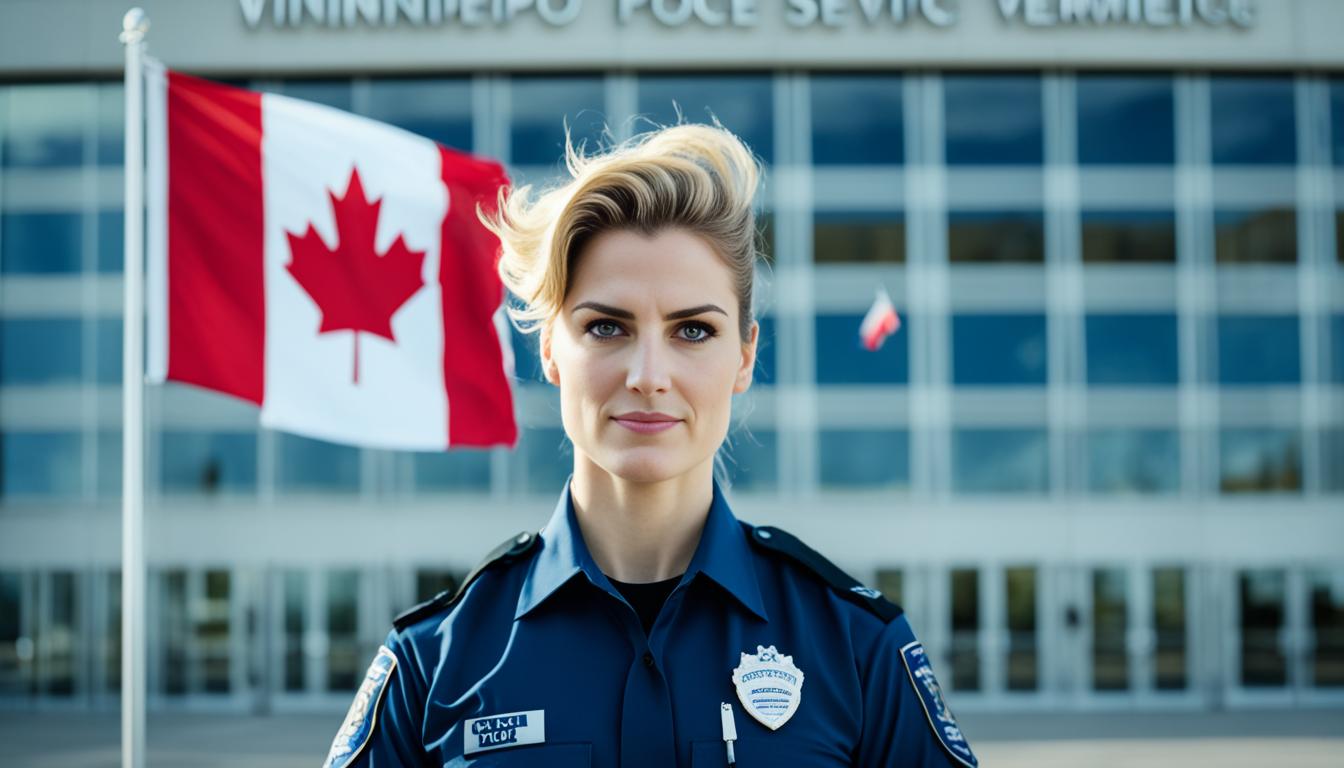
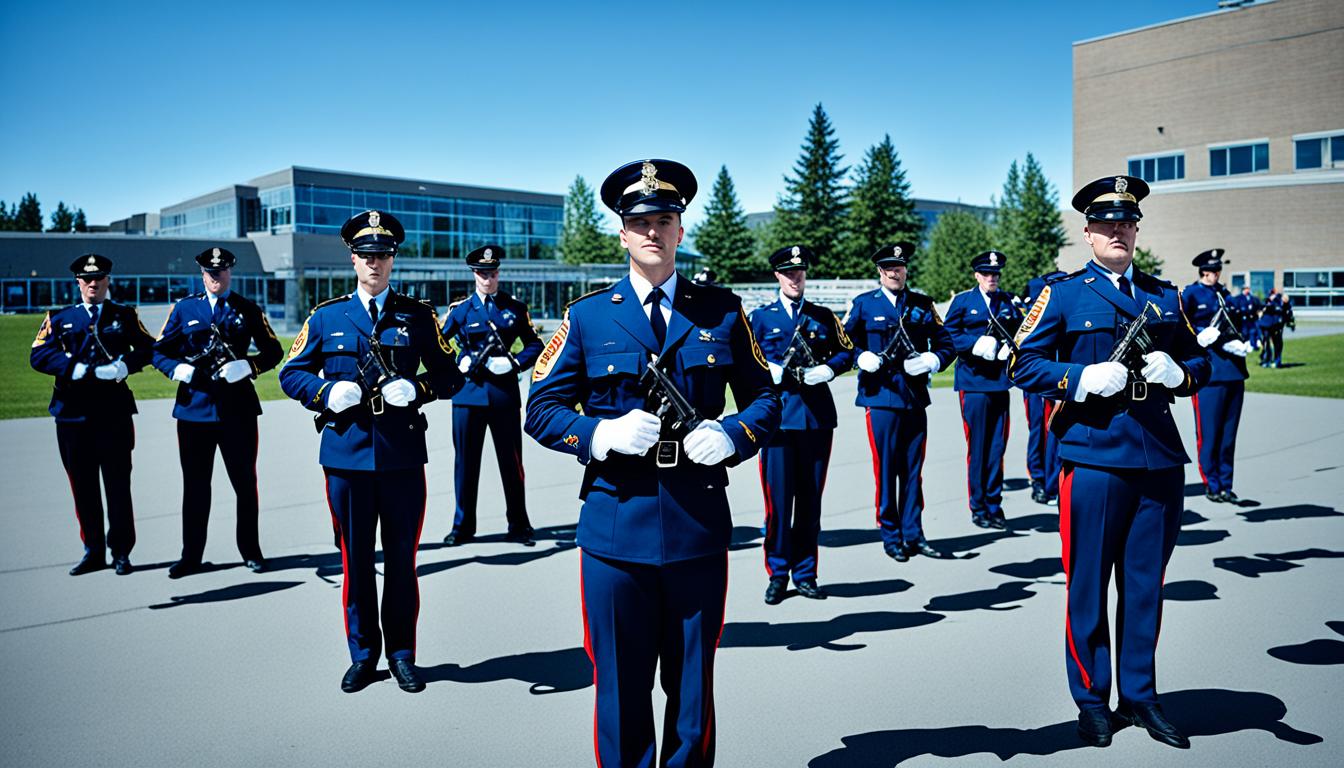
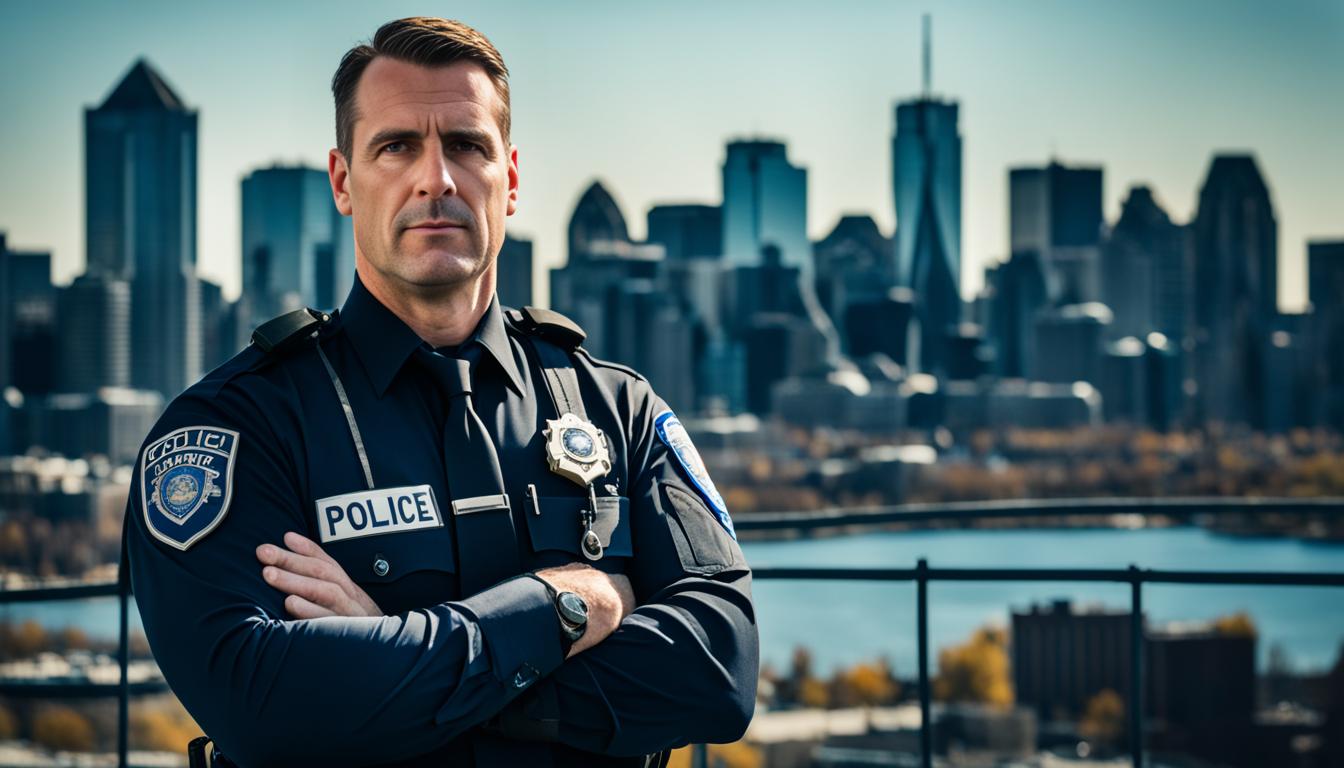
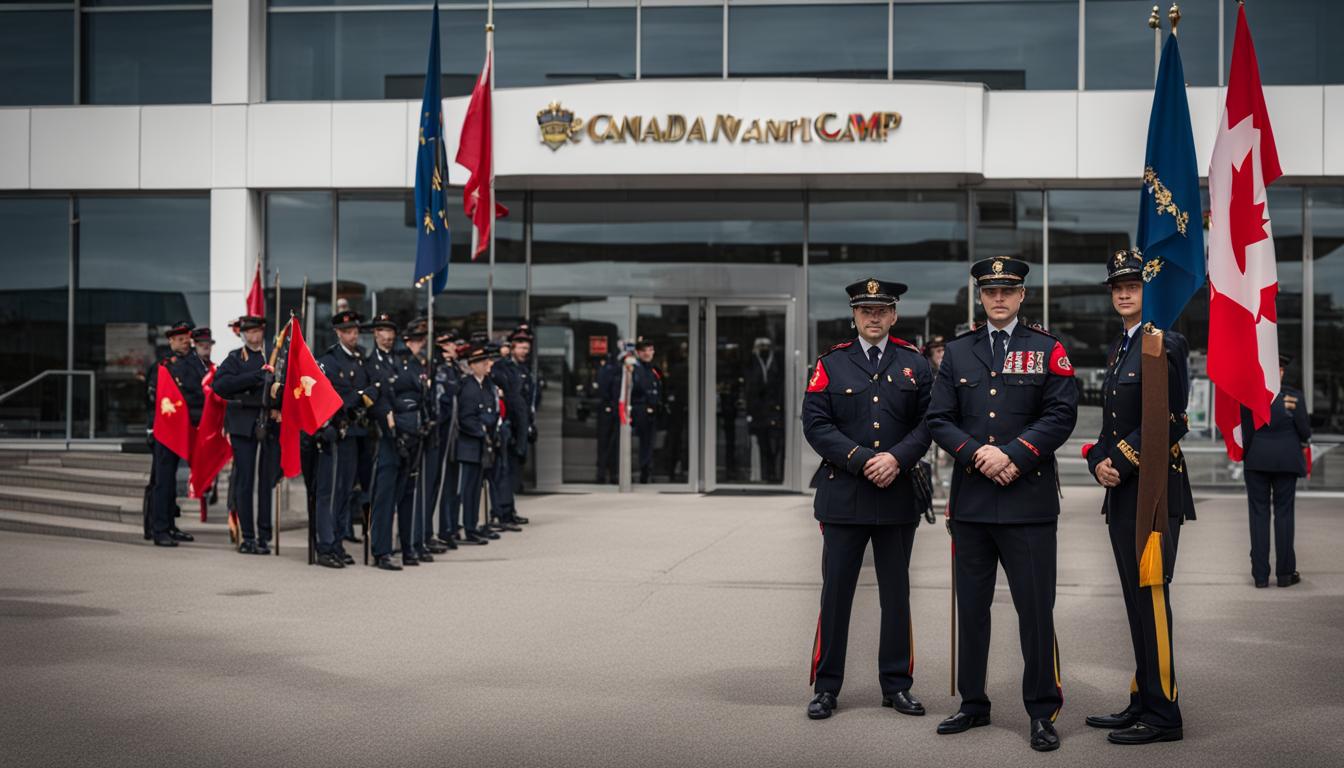
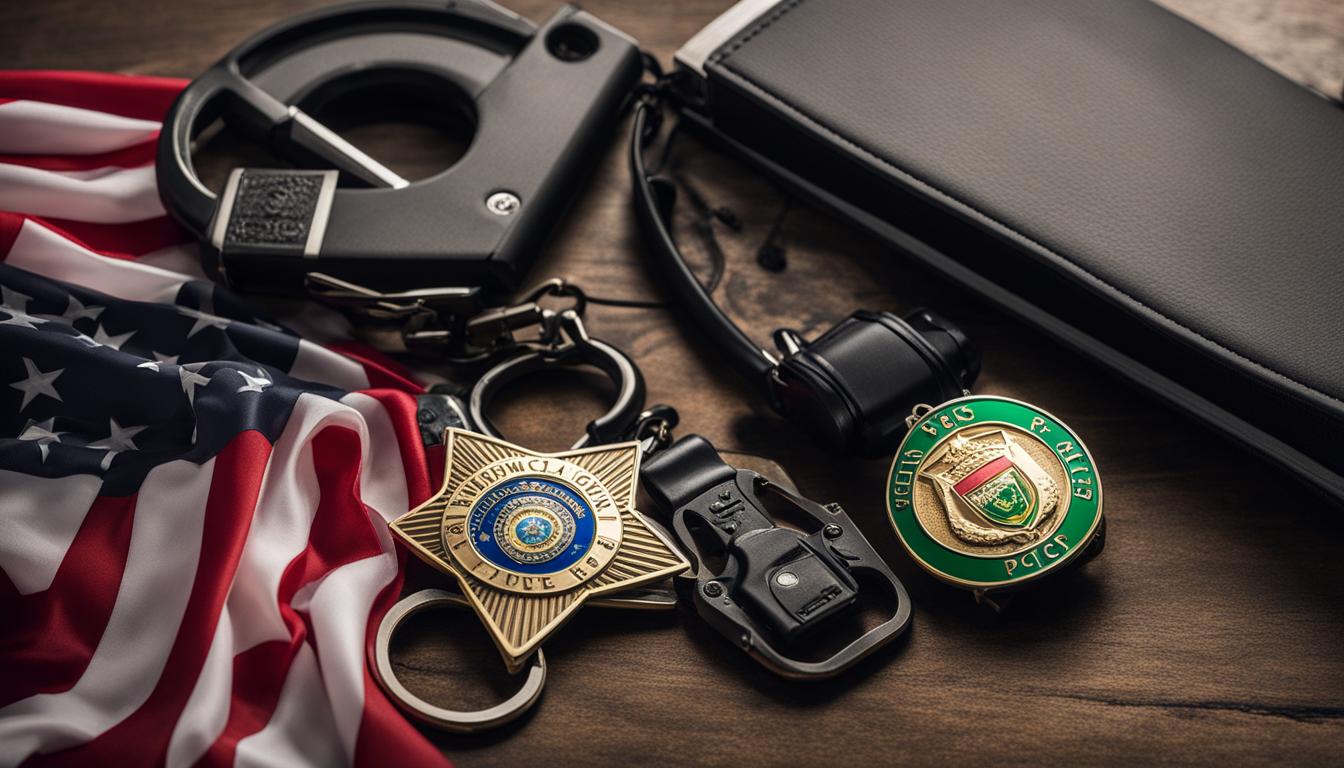
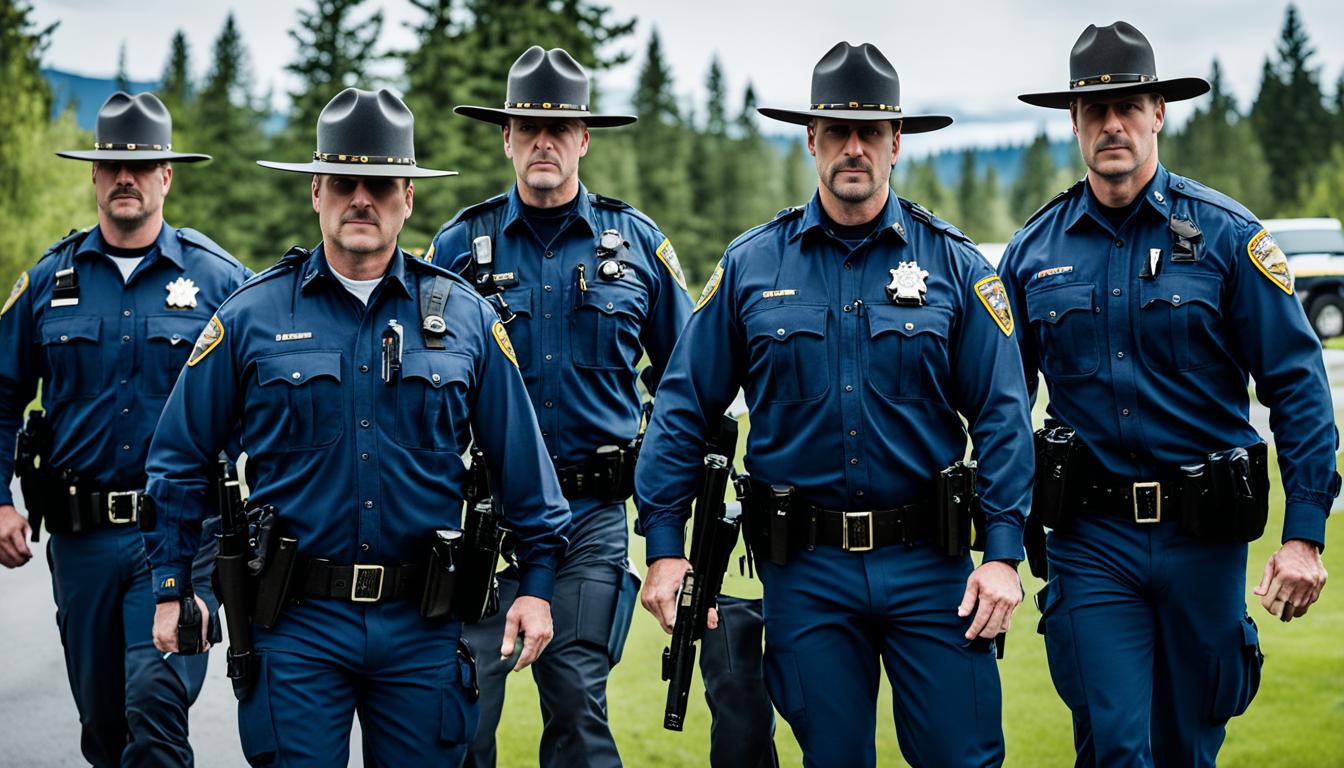
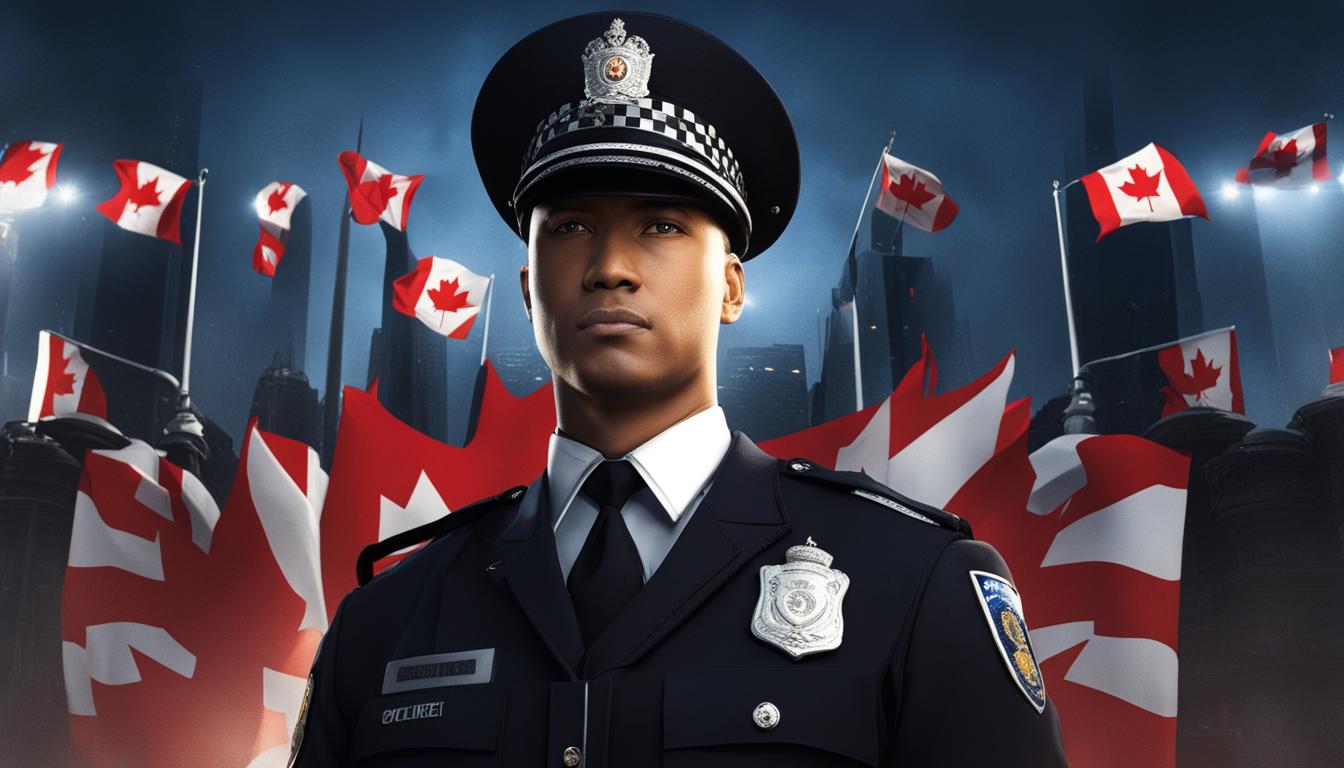









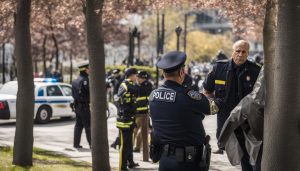



Post Comment